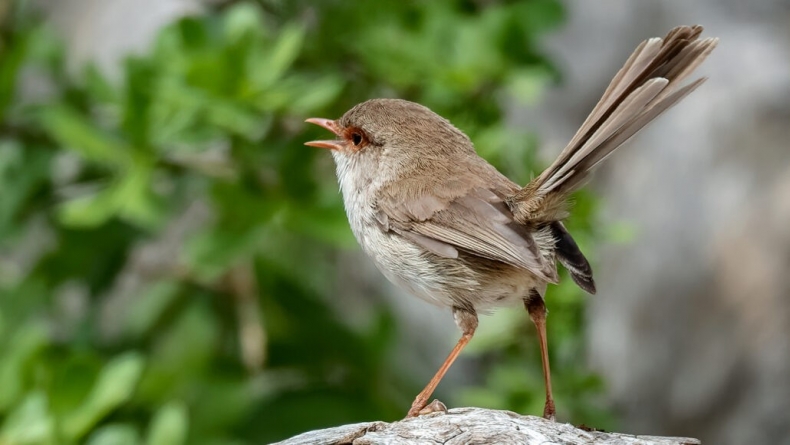-
LONDON: Indian-Origin Teen In UK Gets “Life-Changing” Cancer Treatment - 19 hours ago
-
SILICON VALLEY: All About Pavan Davuluri, New Head Of Microsoft Windows - 20 hours ago
-
LONDON: UK’s India Gate To Commemorate Role Of Indian Soldiers From World Wars - 2 days ago
-
HARARE: Shri Bramha Kumar appointed as the next Ambassador of India to the Republic of Zimbabwe - April 23, 2024
-
LONDON: Indian-Origin Principal Wins UK Legal Challenge Over School Prayer Ban - April 23, 2024
-
TORONTO: Indian-Origin Doctor Needs ₹ 2 Crore For Legal Fees. Elon Musk Responds - April 22, 2024
-
KINSHASA: India-Democratic Republic of Congo Foreign Office Consultations - April 21, 2024
-
LONDON: UK Court Allows Sale Of Nirav Modi’s Luxury London Apartment - April 21, 2024
-
TEHRAN: Travel advisory for Iran and Israel - April 20, 2024
-
LUXEMBOURG: Shri Saurabh Kumar concurrently accredited as the next Ambassador of India to the Grand Duchy of Luxembourg - April 20, 2024
ADELAIDE: Some birds learn to recognize calls while still in their eggs
ADELAIDE: Over a decade ago, behavioral
ecologist Diane Colombelli-Négrel was wiring superb fairy wrens’ nests to
record the birds’ sounds when she noticed something odd. Mother fairy wrens
sang while incubating their eggs, even though it would have made more sense to
keep quiet to avoid attracting predators.
The
discovery “was a bit of an accident,” says Colombelli-Négrel, of Flinders
University in Adelaide, Australia. And it made her wonder: Could the baby birds
be learning sounds, or perhaps even songs, even before they hatch?
Scientists
have long wondered how early in development individuals learn to perceive
distinct sounds. It’s known that human fetuses learn to recognize their mother’s voice (SN: 1/7/13).
For birds such as superb fairy wrens (Malurus cyaneus) that perfect
their songs with parental tutoring, it was thought that sound perception began
well after hatching. But when it became obvious that mother birds were
intentionally singing to their eggs, “we knew we were on to something,” says
avian ecologist Sonia Kleindorfer of the University of Vienna.
Previous
research by Colombelli-Négrel, Kleindorfer and colleagues showed that unhatched
superb fairy wrens learn a vocal “password” from
mom that helps mothers discriminate their own nestlings from those
of pesky cuckoo invaders (SN: 5/9/14). What’s more, unhatched superb
fairy wrens appear to distinguish between songs
of their own species and others, the team reported in 2014.
That ability extends beyond superb fairy
wrens, new research suggests. At least four additional types of birds recognize
sounds specific to their species while still in
their eggs, the researchers report in the Oct. 25 Philosophical
Transactions of the Royal Society B.
The
finding is a surprise to many birdsong scientists, says vocal learning
neuroscientist Wan-chun Liu of Colgate University in Hamilton, N.Y., who wasn’t
involved in the new research. “We used to think a lot of the learning happened
after hatching, but now there seems to be more and more evidence suggesting,
even in the embryonic stage … they are listening,” he says.
In birds
and humans, a drop in embryonic heart rate is known to indicate attention to a
stimulus. Colombelli-Négrel and colleagues’ earlier studies of unhatched fairy
wrens showed a slowed heart rate in response to repeated sounds of their own
species, but not others.
To
investigate whether this phenomenon is widespread among birds, the team turned
their attention to the embryonic heartbeats of captive Japanese quail (Coturnix
japonica domestica), plus three more wild species: little penguins (Eudyptula
minor), red-winged fairy wrens (Malurus elegans) and Darwin’s small
ground finches (Geospiza fuliginosa).
The team
temporarily removed 109 eggs from nests and measured the heart rates of
unhatched chicks before, during and after exposure to playbacks of songs from
their own species or others. And the researchers investigated whether 138
individual embryos became habituated to repeated sounds of unfamiliar
individuals singing their species’ own songs, which would imply learning had
occurred.
Bottom
of Form
“We
expected to find learning evidence in the songbirds but not in the quail and
penguins,” Colombelli-Négrel says. That’s because penguins and quail are “vocal
nonlearners” — birds thought to have calls that are genetically programmed from
birth and not learned from a tutor.
To the
researchers’ surprise, all of the embryos showed not only a slowed heart rate
in response to repeated sounds of their own species, but also habituation. That
finding suggests that these birds learn to perceive the sounds of their
species-specific songs embryonically.
The
scientists don’t know why the penguins and quail, which have their own calls
genetically baked in, have the ability to distinguish their own species’ calls
from those of other birds right from birth. Perhaps it’s useful for survival,
the researchers speculate.
“Birds
are like humans in that there is mother- or father-offspring communication even
before birth,” says coauthor Mark Hauber, a neurobiologist at the University of
Illinois at Urbana-Champaign. The team hopes to study prenatal sound perception
in even more bird species to probe the advantages of this early egg-u-cation.























